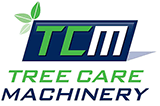Wood chippers are versatile and powerful tools that can help you clean up your yard, get rid of unwanted branches and debris, and even create mulch. However, with so many different types and models available, it can take time to know which one is right for your needs. Here’s a look at the 7 factors you should consider when choosing a wood chipper.
Factors to Consider When Choosing a Wood Chipper
1. Size and Power
One of the most important factors to consider when choosing a wood chipper is its size and power. The size of the wood chipper you need will depend on the size of the branches you’ll be chipping. Generally, larger chippers are more powerful and can handle bigger branches and debris. However, they may also be more challenging to manoeuvre and transport.
If you have a large yard with lots of trees and debris, a larger wood chipper may be the best choice. However, if you only have a few trees and branches to deal with, a smaller, more portable chipper may be a better option.
2. Type of Chipper
There are two main types of wood chippers: electric and diesel. Electric chippers are more environmentally friendly and easier to maintain but may not be as powerful as diesel models. On the other hand, diesel chippers are more powerful and can handle larger branches, but they require more maintenance and produce more emissions.
For example, our Bandit 12X – 12″ is a drum-style wood chipper. Drum-style wood chippers are known for their efficiency and power. These chippers use a large, rotating drum with sharp blades that chop branches and other debris into mulch. They are typically diesel and can handle larger branches than electric models. For example, the Bandit 12X – 12″ is a popular drum-style wood chipper that can handle branches up to 12 inches in diameter. While drum-style chippers may be more expensive and require more maintenance than other chippers, they are an excellent option for those with larger yards and bigger tree branches.
3. Safety Features
Safety should always be a top priority when using a wood chipper. Look for models with safety features like a locking hopper to prevent accidental injury and a shut-off switch that automatically turns off the machine if something goes wrong.
4. Ease of Use
Finally, consider how easy the wood chipper is to use and maintain. Look for models that are easy to start and operate and that come with clear instructions and safety guidelines. Consider how easy it is to clean the chipper after use and whether it requires special tools or equipment.
If you’re looking for a wood chipper that offers safety and tight access, models like our Hansa C45 Chipper are perfect. The adjustable auto feed system reverses the feed rollers to optimise engine recovery speed. This feature allows you to adjust the speed at which the chipper feeds branches and debris into the machine, making handling different types of materials and branch sizes easier. An adjustable auto-feed system reduces the risk of jams and ensures a more consistent and efficient chipping process. Look for models with intuitive controls and safety features that make it easy to adjust the feed speed as needed. Overall, a wood chipper with an adjustable auto-feed system can be a valuable tool for anyone looking to tackle yard cleanup and landscaping tasks easily.
5. Capacity
Another vital factor to consider when choosing a wood chipper is its capacity. The capacity of a wood chipper refers to the size of the chute or hopper that feeds the branches into the machine. A larger capacity hopper can help you process more branches and debris in less time, which can be especially helpful if you have a lot of trees and debris to deal with.
6. Noise Level
Wood chippers can be quite noisy, especially diesel models. If you live in a residential area, you may want to choose a quieter wood chipper that is less likely to disturb your neighbours. Electric chippers are generally quieter than diesel models, so they may be a better choice if noise is a concern.
7. Brand and Reputation
Finally, consider the brand and reputation of the wood chipper you’re thinking of getting. Look for models from reputable brands with a track record of producing high-quality, reliable machines. You can also read online reviews and ask for recommendations from friends and family members who have experience with wood chippers.
Choosing the right wood chipper for your needs can be challenging, but by considering factors like size, power, type, safety and ease of use, you can narrow down your options and find the perfect machine for your yard. Whether you opt for an electric or diesel model, choose a chipper with plenty of safety features and clear instructions for use and maintenance. With the right wood chipper, you can turn your yard debris into a valuable resource that will help keep your lawn and garden healthy and beautiful. Contact us today to find out more about our wood chippers.
FAQs
What are the main differences between electric and diesel wood chippers?
Electric wood chippers are known for being environmentally friendly and easier to maintain. They produce fewer emissions and are quieter during operation. However, they may not be as powerful as diesel models, limiting their capability to handle larger branches. On the other hand, diesel wood chippers offer more power, making them suitable for processing larger branches and tougher debris. However, they require more maintenance, emit exhaust fumes and tend to be louder during operation. Choose between the two types based on your power needs, environmental considerations and maintenance preferences.
How does the capacity of a wood chipper impact its performance, and why is it important to consider?
The capacity of a wood chipper refers to the size of its chute or hopper, which determines the amount of debris it can process at once. A larger capacity hopper allows for the efficient processing of more branches and debris in less time, making it particularly beneficial for properties with extensive yard cleanup needs. Consider the volume of debris you need to manage to select a wood chipper with an appropriate capacity that suits your requirements.
What safety features should I look for?
Safety should always be a top priority when operating a wood chipper to prevent accidents and injuries. Look for models with robust safety features such as a locking hopper to prevent accidental engagement and a shut-off switch that automatically stops the machine in case of emergencies. Additionally, consider features like safety guards, emergency stop buttons and clear warning labels to ensure safe operation at all times.



